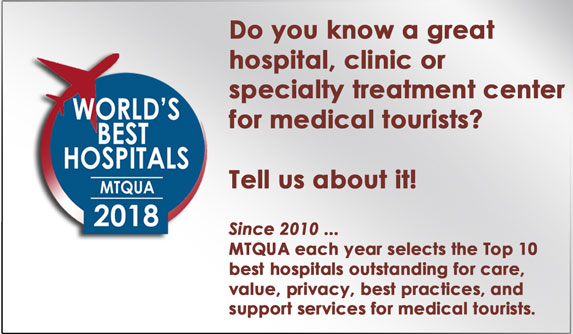 The health world is flirting with disaster, say experts who monitor crime in cyberspace.
The health world is flirting with disaster, say experts who monitor crime in cyberspace.
It’s only a matter of time as health data becomes increasingly digital.
As more medical tourists electronically transfer their personal health records, financial information, passport and other personal I.D. data, and family contacts between medical travel facilitators, physicians and
providers via the internet, the chances increase that a major international hospital, a referring doctor, or a facilitator may be caught in the crime net.
Black market value of patient records
On the black market, a full identity profile contained in a single patient record can bring as much as US$500.
“It is an arms race between the criminal element and the people trying to protect health data,” said Robert Wah, president of the American Medical Association and chief medical officer at the health technology firm CSC, speaking to Politico, a U.S. political media outlet.
“The criminal elements are incredibly sophisticated,” he said.
While a stolen credit card or Social Security number fetches $1 or less on the black market, a person’s medical information can yield hundreds of times more, according to the World Privacy Forum.
Criminal attacks on health data rising
The Identify Theft Resource Center — which has identified 353 breaches already this year across industries it tracks, says almost half occurred in the health sector. Criminal attacks on health data have doubled since 2000, according to the Ponemon Institute, an industry leader in data security.
The high value of health information makes it attractive to hackers.
A credit card can be cancelled within hours of its theft, but information in a patient’s health record is impossible to undo. The record contains financial records, personal information, medical history, family contacts — enough information to build a full identity.
Criminals want health records because they can do huge financial, fraudulent damage, more so than they can with a credit card number or a national identification number.
Health security experts say providers are more focused on privacy and confidentiality and not enough on data terrorists.
Read the full Politico report.

 >
>